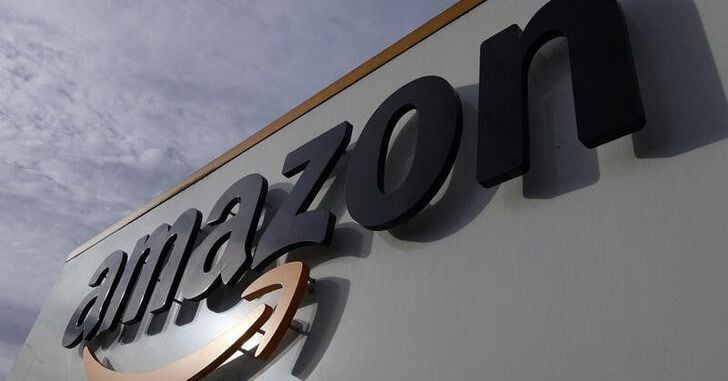WASHINGTON, Sept 26 (Reuters) - The U.S. Federal Trade Commission filed a long-awaited antitrust lawsuit against Amazon.com (AMZN.O) on Tuesday, charging the online retailer with harming consumers through higher prices in the latest U.S. government legal action aimed at breaking Big Tech’s dominance of the internet.
The lawsuit had been expected after years of complaints that Amazon.com and other tech giants abused their dominance of search, social media and online retailing to become gate keepers on the most lucrative aspects of the internet.
The lawsuit, which was joined by 17 state attorneys general, follows a four-year investigation and federal lawsuits filed against Alphabet’s (GOOGL.O) Google and Meta Platforms’ (META.O) Facebook.
“The FTC and its state partners say Amazon’s actions allow it to stop rivals and sellers from lowering prices, degrade quality for shoppers, overcharge sellers, stifle innovation, and prevent rivals from fairly competing against Amazon,” the agency said in a statement.
The FTC said that it was asking the court to issue a permanent injunction ordering Amazon.com to stop its unlawful conduct. The lawsuit was filed in federal court in Seattle, where Amazon is based.
Amazon shares were down 3%.
Amazon said that the FTC lawsuit was wrongheaded and would hurt consumers by leading to higher prices and slower deliveries.
“The practices the FTC is challenging have helped to spur competition and innovation across the retail industry, and have produced greater selection, lower prices, and faster delivery speeds for Amazon customers and greater opportunity for the many businesses that sell in Amazon’s store,” said David Zapolsky, Amazon’s general counsel.
The FTC said that Amazon, founded in 1994 and worth more than $1 trillion, punished sellers that sought to offer prices that were lower than Amazon’s by making it difficult for consumers to find the seller on Amazon’s platform.
Other allegations include that Amazon gave preference to its own products on its platforms over competitors also on the platform. ‘MONOPOLY POWER’
FTC Chair Lina Khan said that Amazon had used illegal tactics to fend off companies that would have risen to challenge its monopoly.
“Amazon is now exploiting that monopoly power to harm its customers, both the tens of millions of families that shop on Amazon’s platform and the hundreds of thousands of sellers that use Amazon to reach them,” she said.
Khan, while a law student, wrote about Amazon.com’s dominance in online retailing for “The Yale Law Journal” and was on the staff of the House committee that wrote a report issued in 2020 that advocated reining in four tech giants: Amazon.com, Apple (AAPL.O), Google and Facebook.
Amazon’s critics welcomed the lawsuit.
“No corporation has ever centralized this much power across so many crucial sectors. Left unchecked, Amazon’s power to dictate and control threatens the rule of law and our ability to maintain open, democratically governed markets,” said Stacy Mitchell of the Institute for Local Self-Reliance which has pushed for the government to act against Amazon.
The need to take action against Big Tech has been one of the few ideas that Democrats and Republicans have agreed on. During the Trump administration which ended in 2021, the Justice Department and FTC opened probes into Google, Facebook, Apple and Amazon.
The Justice Department has sued Google twice - once under Republican Donald Trump regarding its search business and a second time on advertising technology since Democratic President Joe Biden took office. The FTC sued Facebook during the Trump administration and Biden’s FTC has pressed forward with the lawsuit.



I go out of my way not to buy from Amazon. It’s not some altruistic move - about 3 or 4 years ago I started noticing how little oversight Amazon was placing on the products listed, and you’d be lucky if anything (especially tech) was actually what you’d ordered and not some knockoff or used.
I think I’ve only bought one or two things from Amazon (other than digital books) in that time frame. I always look to buy directly from the vendor, if I can.
What concerns me is that I’ve started noticing more and more companies seem to only sell on Amazon. I see this as a mistake, as it hands over more control to one sales channel. I understand a new company doing this, but companies who are well established should maintain their own sales channel directly with their customers, even if they also sell on Amazon.
Recently I bought items from Wahl, Nike and Anker, directly from them. Wahl has products you can only get from their site. I always feel more comfortable just ordering directly from the company when I can, and I notice some companies seem to get that.
If I order directly from the company, I also get better support. I have an actual order number from the company, and correspondence/confirmation from the company. Special deals work better (the same deals on Amazon sometimes have hiccups).
At this point I feel more ethical just sending my money straight to China through temu.
I’m shopping more and more on aliexpress. Same stuff pretty much. All made at the same places. You just have to be patient about the shipping (though that’s definitely getting quicker).
I’m happy to bag on Amazon any day of the week, but most of what you buy aren’t cheap knock offs. No I wouldn’t buy Micro SDs or other generic electronics but for the most part you get what you pay for.
They hand it over to them because of how Amazon operates.
Let’s say you’re a small shop and you ship out oven mitts. Paying for storage of your oven mitts can get expensive. So instead of paying for storage, you can actually have Amazon store them in their warehouse and allow people to buy directly from there. You don’t have to pay Amazon extra for storage, just their standard fees.
It does make sense if you have a business model that doesn’t support storing your products.
I don’t like it, but it makes sense for businesses.
Unless it’s changed, I’m pretty sure you do have to pay extra for amazon to store items. It’s not a lot, but when i dabbled in selling on az using them to store and ship had an extra fee involved.
I’ve completely switched to eBay for most purchases. Yes they are also a giant company, but more focused on used goods and small sellers.
It’s often cheaper than Amazon too, and most major brands have their own official store page. Certified refurbished items come with a 1 or 2 year warranty. I always buy used if it’s available, and from the smallest seller, so it recirculates products and helps everyday people who are trying to declutter.
Selling fees have gone up over the years (about 13%, but still much lower than Amazon). And eBay does a lot more advertising for new products now, so I’m not so hopeful long-term. If there was a smaller company offering the same benefits I would switch, but so far nothing comes close (in the US at least).
I’m telling you what - eBay seems to really care about its buyers. In every dispute I’ve had I’ve generally came out happy. Keep the item and full refund or return free of charge.
If you look closely you can see who fulfills the order and what “store” is selling it. An official brand store will usually be reliable if the brand is.
only if its shipped by the seller.
Due to amazons stock mixing practices, You could still get a counterfit/return/broken item no matter what seller you order from if its fulfilled by amazon
That’s why I mentioned fulfillment. However official store items are supposed to have a unique identifier to stop anyone else’s product getting sent. If you buy (for example) an Anker phone battery and get an Ankre phone battery instead then it was because Amazon specifically injected that. And if true that’s another thing to go after them for. But I’ve never had that problem as long as (in the case example) I buy from the official Anker store front on Amazon. Now if buy from 123Electronics it gets bad. And worse if fulfillment is through Amazon on that third party seller.
the problem isnt getting an Ankre Phone battery when you order Anker
the problem is getting battery that says Anker, but came from a ripoff factory with no safety and ends up burning your house dow, because the box and the internals are identical, thus counterfit… not knockoff.
Or, like one motorcycle guy on youtube got, an official box with a precise weight of rocks in it…TWICE.
https://youtu.be/hTWLYHs9k9M
https://www.youtube.com/watch?v=DXPnOq-XJg8
Okay that’s literally theft at that point. I highly doubt Amazon has a policy of replacing products with a weight of rocks meant to fool their own sensors.
You’re a couple apples short of a bushel aint ya?
No ones claimed amazons the one putting fake stuff in boxes… I’ve said, repeatedly, that the issue is their stock mixing. Private sellers, returns, brand names, all their stuff is mixed together, without any indicator of what originated from who, Which leads to cases like this.
Have you seen how their system works? Everything is individually tagged. Sitting it next to other things isn’t an issue. And getting a box of rocks is something that can happen to any retailer.
Amazon ain’t great but this is ridiculous.
Riiiight
Okay, I dont have a drill strong enough to penetrate this wall, so I’m giving up.